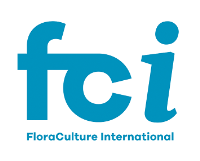
Successful webinar defines the road to recovery for the ornamental horticulture industry
DIDCOT, UK / AGILITYPR.NEWS / July 03, 2020 / The International Association of Horticultural Producers (AIPH) and its magazine, FloraCulture International (FCI), had a massive response from ornamentals growers from around the world who joined its free webinar on 30 June 2020.
The event was titled: Supporting Growers Coming Out of The Covid-19 Crisis, with more than 300 people registering from 48 countries and more than half attending the live event at 4pm (CEST) facilitated by experienced webinar organiser, Jungle Talks.
Traumatic and immediate has been the impact of this invisible virus on the global green industry. The livelihoods of many growers have been squeezed by the impact on their traditional marketplaces, the transport supply chain and the health and safety of workers
Providing a scholarly overview of the global shifting landscape was Dr Charlie Hall, Ellison Chair in International Floriculture, Texas A&M University, USA. He admits that quantifying the nature of the impact has been difficult as “the data is lagging” and somewhat confusing.
For example, sales for 68% of American growers were up from February to June, for 9% they were flat and for 24% they were down, compared to the same period in 2019. He adds: “this has been a very mixed type of crisis, where some benefit while others have been hurt.”
Dr Hall’s presentation guides the audience on how leaders, no matter what industry, should be thinking in the “crucible of crisis”. He discusses how leaders should be managing people, from customers to suppliers to essential workers and concludes with how leaders need to think and react. He sees now as the pivotal moment in time where we need to look forward to shifting, realigning, and “reimagining ourselves towards new opportunities”.
Sharing his personal view on how the recovery for horticulture will look, he says it will be “more of an inverted square root symbol”. Illustrating with his fingers, “where we, were before ‘the great shutdown’ and then we drop precipitously, and we’ll have a small v-shaped recovery, but then a more prolonged recovery as we deal with the shift to the new normal to get us back to where we were, here.”
Telling their stories on handling the crisis and their future were Toine Overgaag of Westerlay Orchids, California, USA and Arie van den Berg of Van den Berg Roses, the Netherlands.
As president of Westerlay Orchids, Overgaag is a hands-on executive who believes the best way to inspire team members is by encouraging personal engagement through empowerment. He has been president of Westerlay Orchids since 2009, a period in which the company’s sales volume, of potted orchids to supermarkets, has quadrupled to around three million a year. He says: “We were in a strong position and had been planning a pretty significant expansion. Then the supermarkets hit the brakes.”
Overgaag talks about the need to act quickly to make the changes to ensure the survival of the business and not cut product purchases or change capital expenditure. One example was to move the accounts payable to a later date of 6o days. “Not something we like to do,” adds Overgaag. The other was to apply for the paycheck protection scheme offered by the United States government.
More importantly, Overgaag sought to protect the wellbeing of his employees. “We were very, very serious, about this and we still are constructively paranoid about this invisible enemy. We put safety over business concerns, and we expanded our sick leave dramatically. We broke out people in the production area into work teams and devised different shifts. We educated them on protection with the goal that no one could catch Covid-19 on the premises."
With the orchid stock that was not moving Overgaag did not waste time in delivering it to the people that needed picking up. They created a target to donate 100,000 potted orchids to hospital staff to lift their spirits rather than waste the beautiful orchids. 91,000 have been donated to date. The response to the coronavirus pandemic also meant Overgaag is now looking towards a digital platform for promotion and online markets.
As the owner of a thriving, international rose growing business on three different continents, Arie van den Berg’s family business Berg Roses felt the beginnings of the coronavirus pandemic happening in China at the start of 2020.
In his unique position, with nurseries in the Netherlands, China and Kenya, Van Den Berg shared stories of how Covid-19 impacted his subsidiaries in different countries, in different ways, and what they did to manage and overcome the crisis.
Despite the differing obstacles he helped his workforce navigate the crisis, and the substantial structural changes occurring at the flower auctions, Van den Berg says the most significant uncertainty that he has not been able to manage is the route to market. He says: “I think how we contract with airline and trucking services will change. I think the way that these entities operate will also change, and we will all consider risk more as a factor in our business operations.”
Concerning the future all speakers are aware there are ongoing threats from Covid-19 on the horizon and the relationship between growers and wholesalers has changed. They all emphasise the need for growers to look more to their core assets by supporting the workforce and telling the public on social media about the importance of living green. In summary, growers should not just concentrate on the short-term fixes but look to new opportunities and ways to thrive which Dr Hall terms as “the new, new normal”.
Commenting on the event, AIPH Secretary General, Tim Briercliffe said: “We are delighted with the response from the industry to this webinar and look forward to providing more such services to help growers through these times.”
View the webinar, free of charge on YouTube https://youtu.be/GNiOjj0v0T8
ENDS
For further details contact:
Rachel Wakefield,
AIPH Communications Executive
Email: rachel.wakefield@aiph.org
Phone: +44 (0) 1235 776160
Website: www.aiph.org & www.floracultureinternational.com & www.jungletalks.com
Follow AIPH on: LinkedIn #AIPH; Facebook: @theAIPH; Twitter @AIPHglobal
Follow FCI on: Facebook: @FloraCultureInternational; Twitter @FloraCulture_
International Association of Horticultural Producers (AIPH)
Since 1948, AIPH has united horticultural producers in an international community that thrives to this day. Much has changed in that time. Technologies advanced, cities rose from the ground, and we have become more connected than ever. As a result, our essential bond with nature has been weakened. AIPH strives to reignite and uphold an appreciation of plants that we believe is a basic human instinct. We support the work of grower associations globally and together we champion a prosperous industry, growing plants that enhance lives, advance societies, and sustain our planet, for this generation and the next.
FloraCulture International magazine (FCI )
FCI is a publication specific to the international floricultural industry. It is distributed directly to individuals and through FCI Partner Associations, (consisting mainly of growers, breeders, wholesalers, landscapers and some retail), on a bi-monthly basis from the Americas to Australasia in both printed and digital forms. FCI has long been a valuable source of news and information for growers around the world.
Jungle Talks
Jungle Talks strives to be a decisive factor in the worldwide horticultural web. It is the partner behind the scenes which delivers content and connects parties on all levels and around the world, by organising webinars, trade missions, study clubs and pieces of training.



Contacts